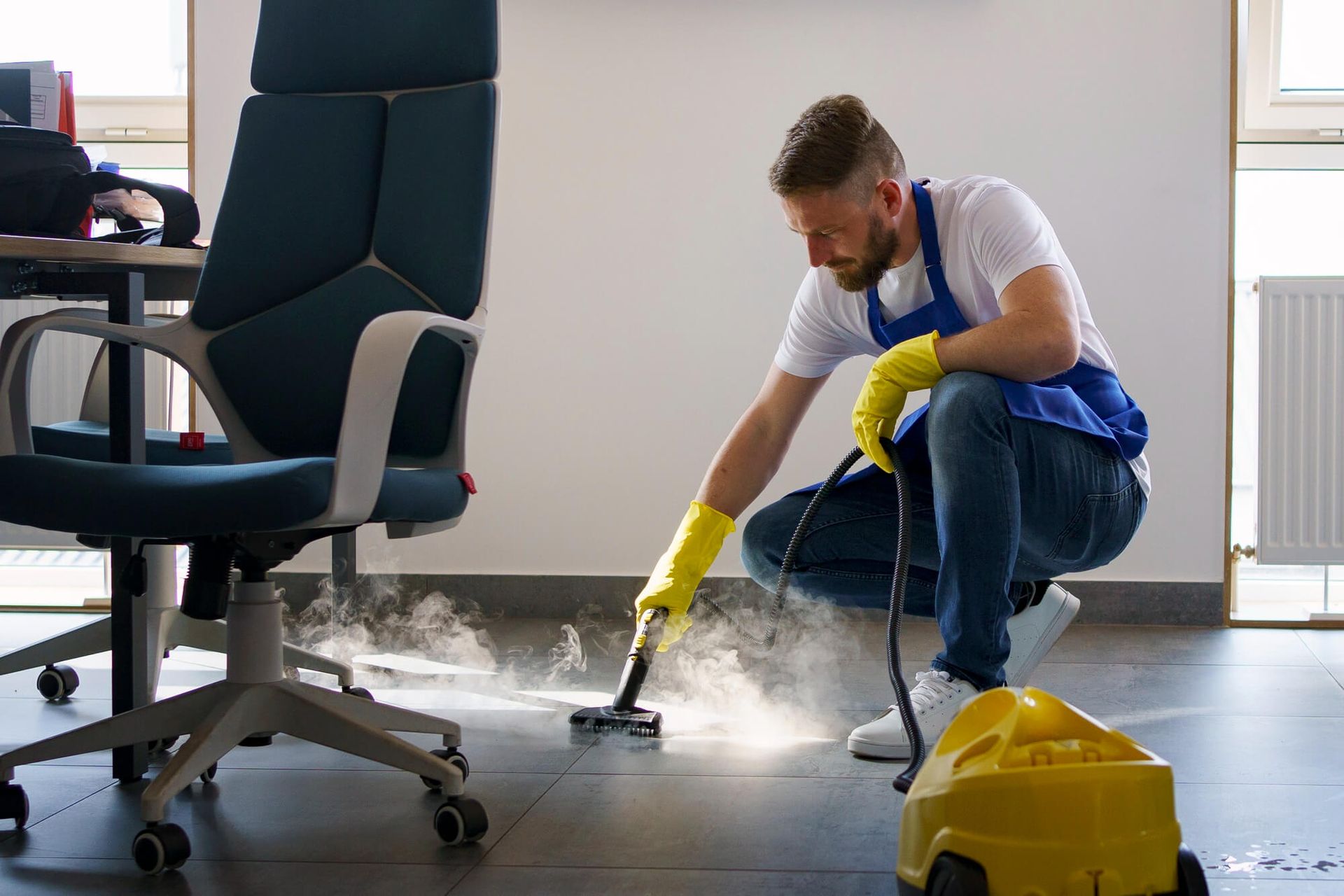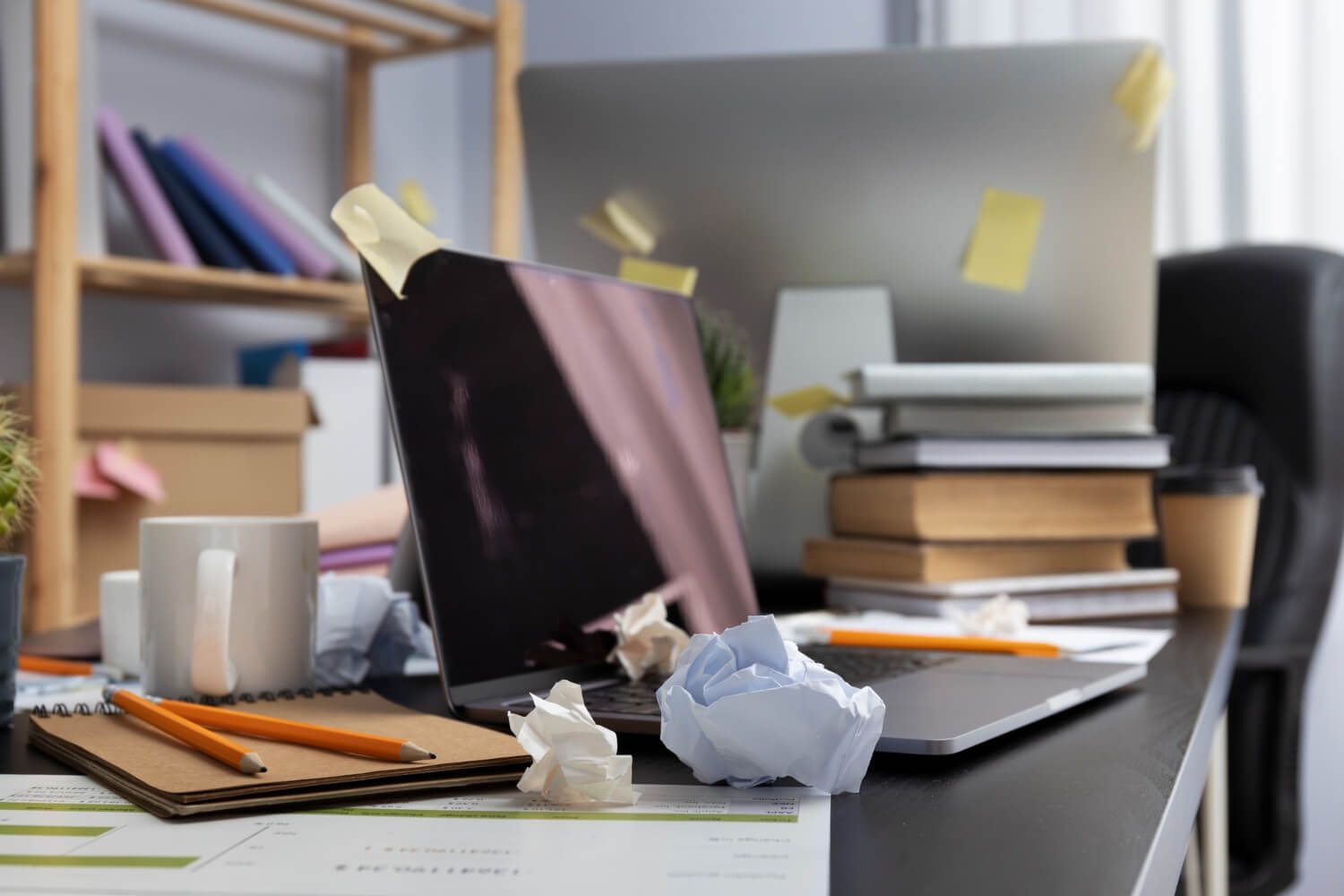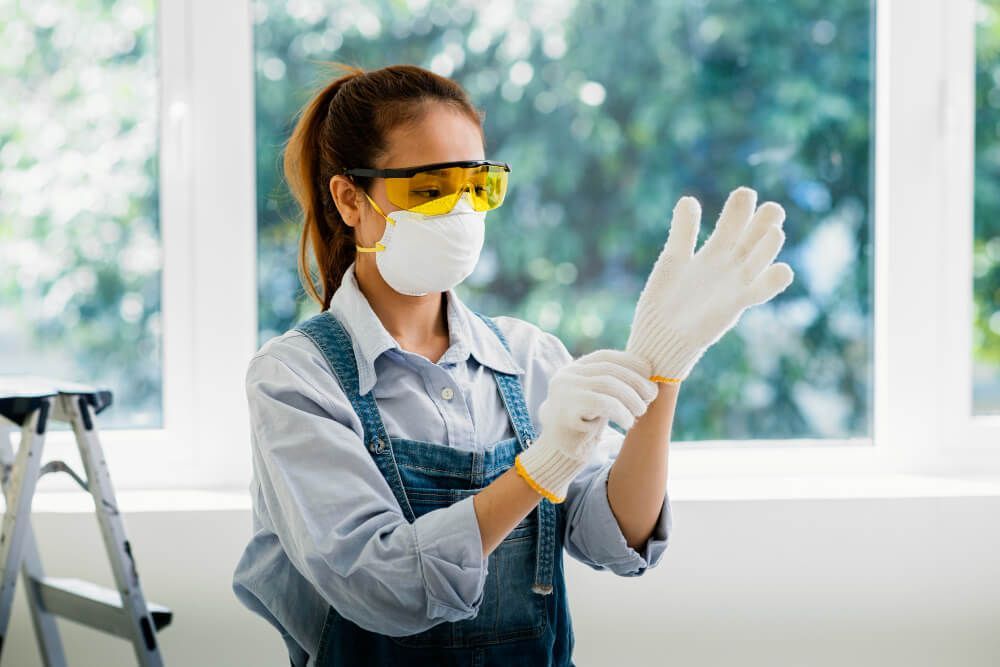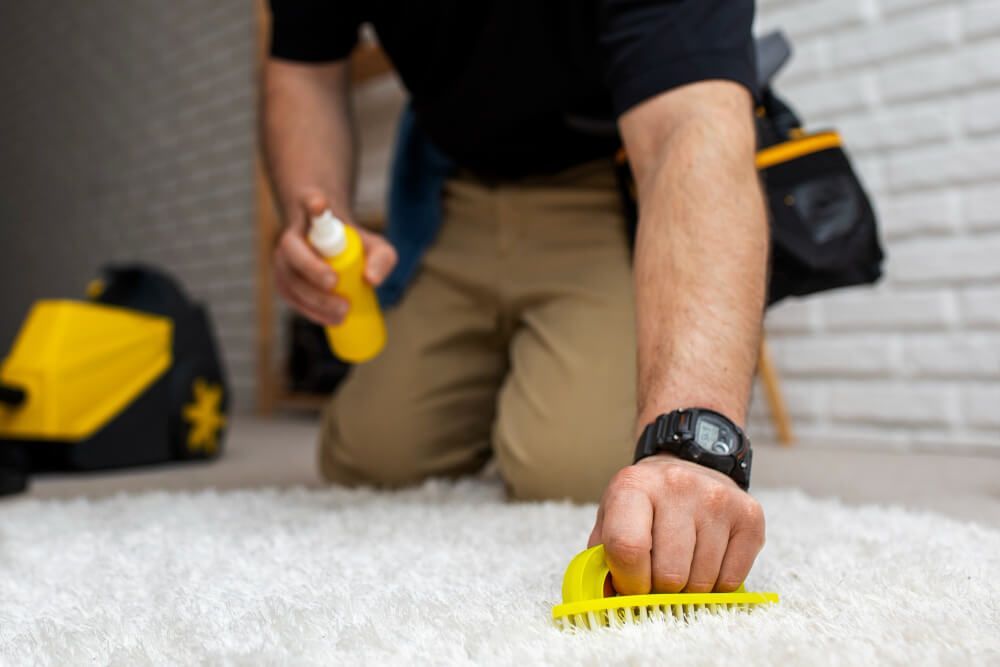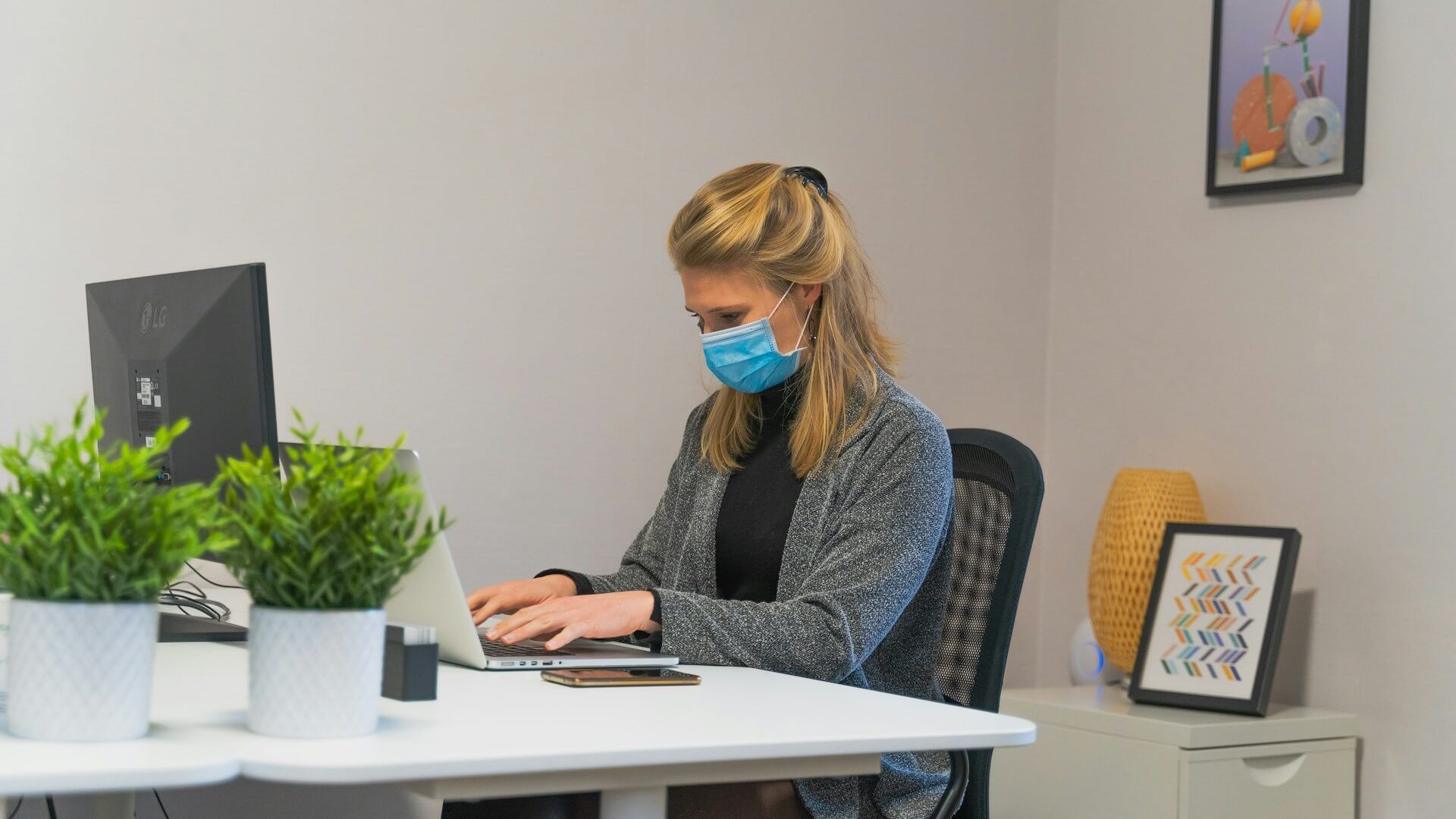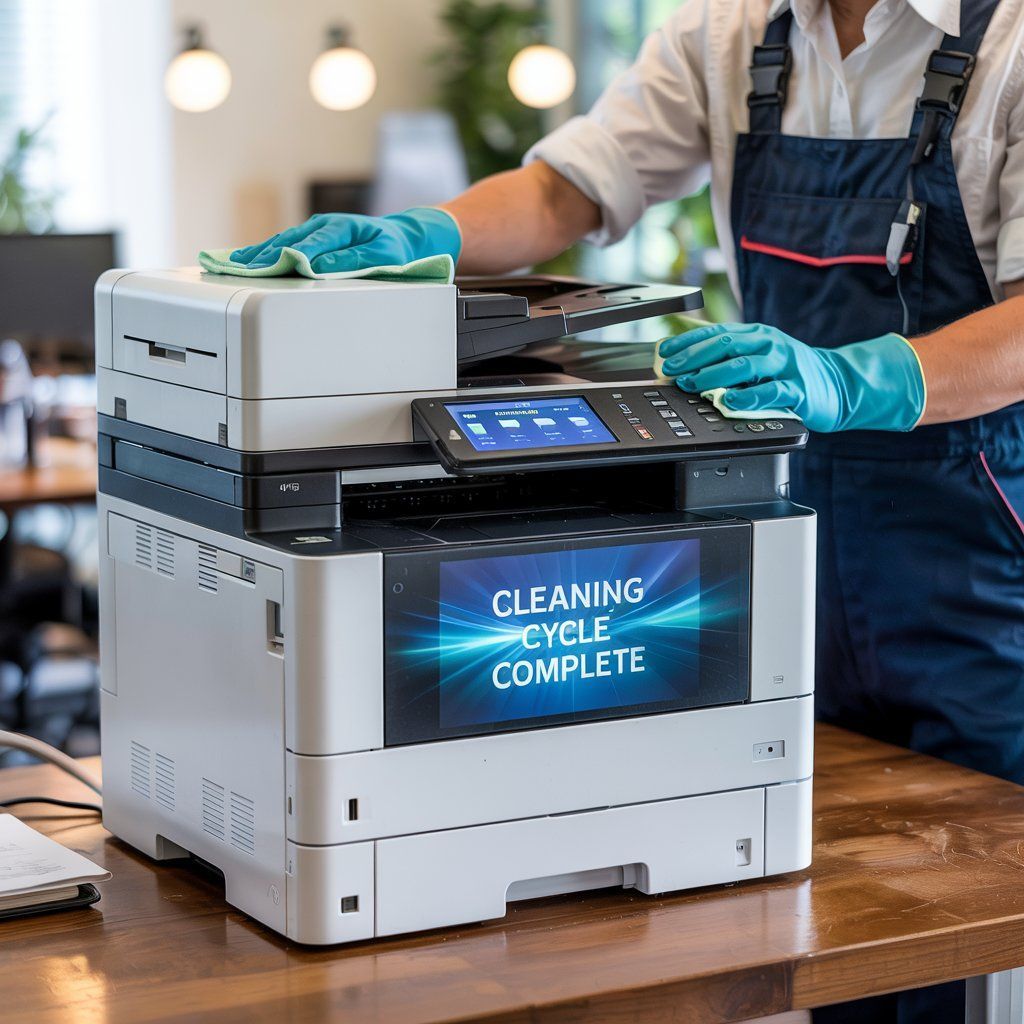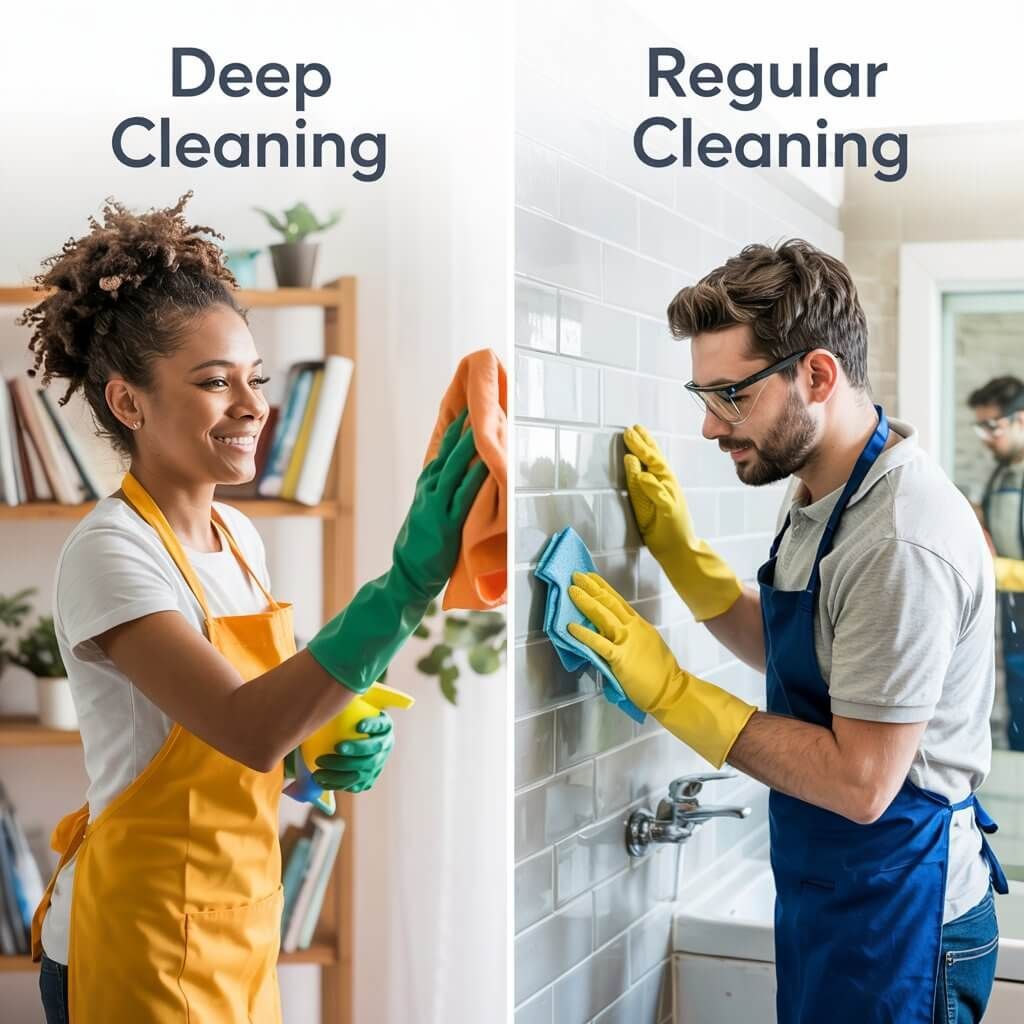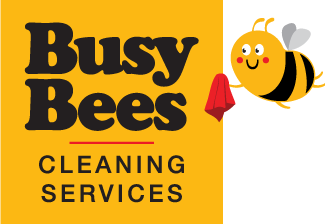How Often Should a Business Schedule Professional Cleaning?
Maintaining a clean, healthy workplace is more than just an aesthetic choice—it's a fundamental aspect of running a successful business.
As New Zealand's trusted cleaning experts since 1993, we've seen firsthand how the right cleaning schedule can transform a workplace, enhancing both its professional atmosphere and operational efficiency.
Yet one of the most common questions business owners and facility managers ask us is:
"How often should we schedule professional cleaning?"
The answer, while not one-size-fits-all, requires careful consideration of several key factors that directly impact your business's cleanliness needs.
In our three decades of experience delivering professional cleaning solutions across New Zealand, we've learned that the optimal cleaning frequency depends on your unique business environment.
From high-traffic retail spaces that require daily attention to corporate offices that might need different intensities of cleaning throughout the week, each business has its own specific requirements.
In this comprehensive guide, we'll help you understand the factors that influence cleaning frequency, explore industry-specific requirements, and provide expert guidance on creating a cleaning schedule that maintains the highest standards of cleanliness and hygiene for your business.
Whether you're managing a small office or overseeing multiple commercial properties, you'll discover practical insights to help you make informed decisions about your cleaning programme.
Understanding Different Cleaning Frequencies
Creating an effective cleaning schedule requires understanding the different levels of cleaning required and how often each should be performed. Let's explore the essential cleaning frequencies that form the foundation of a comprehensive commercial cleaning programme.
Daily Cleaning Tasks
Daily cleaning forms the backbone of a professional cleaning programme, focusing on maintaining hygiene and appearance in high-use areas. These routine tasks are crucial for creating a consistently clean and healthy environment for your staff and visitors.
A professional daily cleaning schedule typically includes:
- Thorough sanitisation of high-touch surfaces such as door handles, lift buttons, and shared equipment
- Cleaning and disinfection of washroom facilities
- Emptying and cleaning of waste bins
- Vacuuming of high-traffic carpeted areas
- Cleaning of kitchen and break room surfaces
- Spot cleaning of glass surfaces and mirrors
- Mopping of hard floors in entrance areas and heavily used spaces
Weekly Cleaning Requirements
Weekly cleaning tasks build upon daily maintenance to ensure a deeper level of cleanliness. These more thorough cleaning sessions help prevent the buildup of dirt and maintain professional standards throughout your premises.
Professional weekly cleaning typically involves:
- Complete vacuuming of all carpeted areas, including under accessible furniture
- Thorough cleaning of all windows and glass partitions
- Detailed cleaning of meeting rooms and collaborative spaces
- Deep cleaning of kitchen appliances
- Thorough dust removal from all surfaces, including skirting boards and window sills
- Sanitisation of less frequently touched surfaces
- Spot cleaning of walls and doors
Monthly and Quarterly Services
Some cleaning tasks require less frequent attention but are essential for maintaining the overall cleanliness and longevity of your commercial space. These periodic services often require specialised equipment and expertise to achieve optimal results.
Monthly and quarterly cleaning services may include:
- Deep carpet cleaning and stain treatment
- High-level dust removal from ceiling fixtures and vents
- Detailed cleaning of upholstery and soft furnishings
- Floor maintenance treatments appropriate to your flooring type
- Deep cleaning of external windows
- Thorough cleaning behind and under rarely moved furniture
- Air conditioning vent cleaning
At Busy Bees, we understand that each business has unique needs that may require adjusting these frequencies. For instance, a busy medical centre might require multiple daily cleanings of certain areas, while a small office might combine some weekly tasks with their daily schedule.
The key to determining the right frequency for your business lies in understanding these basic cleaning intervals and then adapting them to your specific circumstances—something we'll explore in detail in the following sections.
I'll continue with the next main section, maintaining Busy Bees' expert, professional tone.
Factors That Influence Cleaning Schedules
When determining the ideal cleaning frequency for your business, several key factors come into play. Understanding these elements helps create a cleaning programme that precisely matches your needs while ensuring the most efficient use of your cleaning budget.
Workplace Demographics
The way your space is used has a significant impact on cleaning requirements. Every business has its own unique patterns of activity that influence cleaning needs.
Staff Numbers and Density The number of people using your space directly affects how quickly it needs attention. Consider:
- Open-plan offices with high desk density require more frequent cleaning
- Areas with shared facilities need increased attention
- Staff kitchens and break rooms may need multiple daily cleans in larger organisations
- Meeting rooms used by different groups throughout the day need regular attention
Operating Hours Your business hours play a crucial role in determining cleaning schedules:
- Extended operating hours may require multiple cleaning sessions
- 24/7 operations need carefully planned cleaning rotations
- Traditional office hours might allow for end-of-day deep cleaning
- Flexible working arrangements might require adaptable cleaning schedules
Visitor Traffic The flow of visitors through your space requires special consideration:
- Reception areas need constant maintenance to maintain professional appearances
- Client meeting rooms require cleaning between sessions
- Public access areas need more frequent attention
- Seasonal variations in visitor numbers may require schedule adjustments
Property Characteristics
The physical aspects of your property significantly influence cleaning requirements and frequencies.
Facility Size and Layout
- Larger spaces require more time and resources
- Multiple floors need coordinated cleaning schedules
- Open plan versus individual offices affect cleaning approaches
- Common areas require particular attention based on usage patterns
Surface Types and Materials Different surfaces require varying cleaning approaches and frequencies:
- Carpet requires regular vacuuming and periodic deep cleaning
- Hard floors need appropriate cleaning methods based on material
- Glass partitions and windows require specialist attention
- Natural materials might need specific cleaning products and techniques
Building Age and Design The age and design of your facility influence cleaning needs:
- Older buildings might require more intensive cleaning
- Modern facilities with specific finishes need appropriate care
- HVAC systems affect dust accumulation patterns
- Building design features might create specific cleaning challenges
Environmental Factors
External conditions play a crucial role in determining cleaning frequencies.
Seasonal Considerations New Zealand's climate creates specific challenges:
- Wet weather increases the need for entrance cleaning
- Summer brings additional dust and pollen
- Seasonal activities affect cleaning requirements
- Holiday periods might require schedule adjustments
Location-Specific Needs Your business location influences cleaning requirements:
- CBD locations often need more frequent cleaning due to urban dust
- Coastal areas face additional challenges from salt air
- Industrial areas might require more intensive cleaning
- Surrounding environment affects window cleaning frequency
The interplay of these factors determines the optimal cleaning schedule for your business. At Busy Bees, we consider all these elements when designing a customised cleaning programme that ensures your premises maintain the highest standards of cleanliness while maximising the value of your investment.
Industry-Specific Cleaning Requirements
Different industries have unique cleaning needs based on their operations, regulations, and client expectations. Understanding these specific requirements is crucial for maintaining appropriate cleanliness standards and compliance.
Office Environments
Modern office spaces require a balanced approach to cleaning that maintains professional standards while supporting productivity.
Standard Office Cleaning Frequencies Professional offices typically require:
- Daily cleaning of workstations and common areas
- Weekly deep cleaning of meeting rooms and collaborative spaces
- Monthly attention to carpets and soft furnishings
- Quarterly deep cleaning of all surfaces and fixtures
Special Considerations for Shared Spaces The rise of collaborative workspaces creates unique challenges:
- Hot-desking areas need daily sanitisation
- Shared meeting pods require cleaning between uses
- Breakout spaces need frequent attention throughout the day
- Communal kitchens require multiple daily cleaning sessions
Technology and Equipment Cleaning Modern offices contain sensitive equipment requiring specialist care:
- Regular cleaning of computer equipment and phones
- Careful attention to shared printers and copiers
- Protection of sensitive electronics during cleaning
- Appropriate cleaning products for different surfaces
Healthcare and Medical Facilities
Healthcare environments demand the highest standards of cleanliness and sanitisation to ensure patient and staff safety.
Stringent Cleaning Protocols Healthcare facilities require:
- Multiple daily cleaning rounds of patient areas
- Immediate response cleaning for spillages
- Regular sanitisation of all surfaces
- Specialist cleaning of medical equipment areas
Compliance Requirements Healthcare cleaning must meet strict standards:
- Adherence to Ministry of Health guidelines
- Documentation of cleaning procedures
- Regular testing of cleaning effectiveness
- Specific protocols for different areas
Infection Control Measures Enhanced cleaning measures include:
- Use of hospital-grade disinfectants
- Colour-coding systems to prevent cross-contamination
- Specific cleaning sequences to maintain sterility
- Regular staff training on infection control
Retail and Hospitality
Customer-facing businesses require cleaning schedules that maintain appearance while ensuring operational efficiency.
Customer-Facing Areas Front-of-house spaces need:
- Continuous attention during operating hours
- Regular cleaning of display areas
- Immediate response to spills and accidents
- Special attention to entrance areas
Back-of-House Requirements Support areas require:
- Daily deep cleaning of storage areas
- Regular sanitisation of staff facilities
- Cleaning of delivery areas
- Maintenance of waste management areas
Peak Period Adjustments Flexible scheduling to accommodate:
- Additional cleaning during busy periods
- Special event preparation and cleanup
- Seasonal shopping variations
- Extended trading hours
Understanding these industry-specific requirements helps ensure your cleaning programme not only meets but exceeds the standards expected in your sector. At Busy Bees, we draw on our extensive experience across different industries to deliver cleaning solutions that address your unique challenges while maintaining the highest levels of cleanliness and hygiene.
Creating Your Optimal Cleaning Schedule
Developing an effective cleaning schedule requires careful planning and consideration of your specific business needs. Let's explore how to create a programme that delivers consistent results while providing value for your investment.
Assessment and Planning
A thorough initial assessment forms the foundation of an effective cleaning programme. This systematic approach ensures all aspects of your cleaning needs are considered and addressed.
Professional Site Evaluation A comprehensive assessment includes:
- Detailed walk-through of all areas
- Identification of high-traffic zones
- Analysis of surface types and materials
- Review of current cleaning pain points
- Assessment of security requirements
- Evaluation of access times and restrictions
Traffic Pattern Analysis Understanding movement through your space helps optimise cleaning schedules:
- Peak usage times for different areas
- Staff movement patterns
- Visitor flow analysis
- Quiet periods suitable for detailed cleaning
- Identification of high-touch surfaces
Budget Considerations Creating a cost-effective cleaning programme involves:
- Balancing frequency with requirements
- Identifying priority areas
- Allocating resources efficiently
- Planning for periodic deep cleaning
- Accounting for specialist services
Customising Your Cleaning Programme
With assessment data in hand, we can create a tailored cleaning programme that meets your specific needs.
Flexible Scheduling Options Your programme should accommodate:
- Core business hours
- After-hours access requirements
- Weekend operations
- Special event cleaning
- Emergency response procedures
Priority Area Identification Focusing resources where they matter most:
- High-visibility areas
- Critical operational spaces
- Compliance-sensitive zones
- High-traffic thoroughfares
- Client-facing areas
Special Requirements Integration Incorporating specific needs such as:
- Sensitive areas requiring security clearance
- Specialist cleaning for specific equipment
- Seasonal cleaning requirements
- Industry-specific protocols
- Environmental considerations
Monitoring and Adjusting
A successful cleaning programme requires ongoing evaluation and refinement to maintain effectiveness.
Quality Assurance Measures Regular monitoring through:
- Scheduled site inspections
- Cleaning checklist completion
- Staff feedback collection
- Client satisfaction surveys
- Regular performance reviews
Schedule Refinement Continuous improvement through:
- Regular programme reviews
- Adjustment based on feedback
- Adaptation to changing needs
- Incorporation of new requirements
- Optimisation of cleaning routes
Feedback Implementation Maintaining high standards through:
- Regular client meetings
- Staff input consideration
- Prompt issue resolution
- Programme adjustments as needed
- Continuous communication
At Busy Bees, we understand that creating the right cleaning schedule is crucial for maintaining your premises to the highest standards. Our experience since 1993 has taught us that successful cleaning programmes require both careful initial planning and ongoing refinement.
I'll write the conclusion section, maintaining Busy Bees' professional and solution-focused tone.
Expert Solutions for Your Business Cleaning Needs
Creating an effective cleaning schedule for your business is a dynamic process that requires careful consideration of multiple factors. From understanding the basic cleaning frequencies to accounting for your industry-specific requirements, each element plays a crucial role in maintaining a clean, healthy, and professional environment.
As we've explored throughout this guide, the key to success lies in:
- Understanding your unique business needs
- Recognising the different levels of cleaning required
- Considering industry-specific requirements
- Implementing a flexible and responsive cleaning programme
- Maintaining regular monitoring and adjustment
With over three decades of experience serving New Zealand businesses, we've learned that the most effective cleaning programmes are those that adapt and evolve with your business. The right schedule not only maintains cleanliness standards but also protects your investment in your premises and supports your business operations.
Next Steps for Your Business
If you're ready to enhance your cleaning programme or establish a new one, consider these steps:
- Schedule a professional site assessment to evaluate your specific needs
- Review your current cleaning practices and identify areas for improvement
- Consider how your business growth might affect future cleaning requirements
- Discuss your cleaning goals with a professional cleaning partner
Professional cleaning is not just about maintaining appearances—it's an investment in your business's success, your staff's wellbeing, and your property's longevity.
